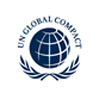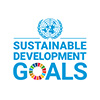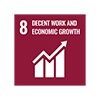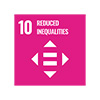Social performance
Our industrial assets are closely linked to the communities and regions where they operate, bringing the potential for socioeconomic opportunity, disruption and impact.
Our activities can make a significant contribution to the national, regional and local economies through the production and marketing of commodities that help provide the basic building blocks for development. Through meaningful stakeholder engagement and integration of social performance into our core business, we support the advancement of the mutual interests of our host communities, broader society, and our industrial assets .
Our approach
We aim to minimise adverse impacts from our activities and to build partnerships to support sustainable development and growth.
Our strategic objective is to advance socioeconomic development and opportunities by partnering with communities to build resilience and reduce dependency on our operations. This is challenging when the immediate, short-term needs in many of our communities are high. Our aim is to focus our efforts on developing programmes that contribute to longer-term social objectives through activities such as enterprise and job creation, education, health and wellbeing and capacity building.
We base our socioeconomic development activities on the resources, needs and plans identified at a local or regional level, which is informed by relevant data gathering and community engagement.
Engaging with host communities
We require our industrial assets to design social programmes that reflect an understanding of their host communities based on data gathering and engagement. This involves:
- analysing local demographics, economies, sociocultural activities, religions, existing and potential conflict, and availability of services and infrastructure to build a picture of our host communities; and
- listening to people’s needs and concerns, as well as identifying our potential impacts, risks and opportunities.
From these assessments, we expect our industrial assets to design stakeholder engagement strategies aligned with our business objectives and their local needs. Our objective is to work towards creating meaningful, constructive, and proactive dialogue with our local communities.
We expect our industrial assets to engage with their local communities in a range of different ways, tailored to the local context and culture. These may include radio broadcasts, social media channels, site publications, complaints and grievance mechanisms and face-to-face meetings.
Social Contribution Framework
During 2024, through the launch of our Social Contribution Framework, we advanced the review of our approach to and management of our social contributions to incorporate requirements of the International Council on Mining and Metals’ Socio-Economic Reporting Framework. Our Social Contribution Framework articulates the goals, operating principles and governance of our industrial assets’ social contributions for enhanced business performance and sustained development outcomes for stakeholders, with recognition of both discretionary and non-discretionary contributions.
It aims to strengthen our social contribution and social investment activities by:
- articulating our direct social contribution priority areas;
- linking internal and external policies, strategies, standards, codes and disclosures relevant to our direct social contribution; and
- strengthening governance of our direct social contribution through good project design, management, and impact measurement including improved data quality and reinforcement of compliance and other governance requirements.
Paying special attention to vulnerable groups
Some people living in our host communities are at risk of economic and social discrimination. These may include Indigenous Peoples, women, children, disabled and elderly people, and victims of conflict.
Our community consultation processes are designed to be inclusive, respectful of local context, cultures, and traditions. We seek to identify vulnerable groups, such as women, children and Indigenous Peoples, and develop and implement strategies to include them in the engagement process. For more information, see Indigenous Peoples.
Making our payments to governments transparent
We pay all relevant taxes, royalties and levies required by local and national regulations in our host countries. The payments we make to the governments of the countries in which we operate include local, national, sales and employment taxes, government royalties, and licence and permitting fees.
In addition, we contribute to local economies through our use of local suppliers, wages and employee benefits, voluntary support of socio-economic initiatives such as health and education projects, and infrastructure improvements.
We understand the detrimental impact of corruption on the capacity for regions and nations to fully realise rights and benefits due to them from resource development. We support efforts to combat corruption including through transparency initiatives and our own compliance initiatives, as we discuss further in our 2024 Ethics and Compliance Report.
Our annual Payments to Governments Report addresses our UK regulatory obligations under DTR 4.3A of the Financial Conduct Authority’s Disclosure Guidance and Transparency Rules (UK Transparency Requirements), which were introduced to implement the payments to governments requirements provided for in the EU Transparency and Accounting Directives. It also includes our commodity trading payments made to state-owned enterprises (SOEs) in countries that have implemented the Extractive Industry Transparency Initiative (EITI) for the purchase of oil and gas and minerals and metals originating in those countries .
We have been an active supporter of the EITI since 2011 and its principles of transparency and accountability. We participate in in-country forums supporting the EITI and, at a corporate level, in the EITI Commodity Trading Transparency working group. We recognise the contribution of EITI’s principles of transparency and accountability towards establishing a global standard of good governance for the extractives and commodity trading industries. As part of our extractive business, our industrial assets in EITI-implementing countries contribute, where applicable, to the national EITI reports by providing the relevant EITI disclosure to the multi-stakeholder-groups in the relevant country. Since 2017, we have disclosed our commodity trading payments made to SOEs in EITI-implementing countries for oil and gas purchases and since 2019, for metals and minerals.
Principles we follow
-
 UN Global CompactVisit the website
UN Global CompactVisit the website -
 Principle 1Read more
Principle 1Read morebusinesses should support and respect the protection of internationally proclaimed human rights
-
ICMMVisit the website
-

-
 UN SD GoalsVisit the website
UN SD GoalsVisit the website -

-

-

-


